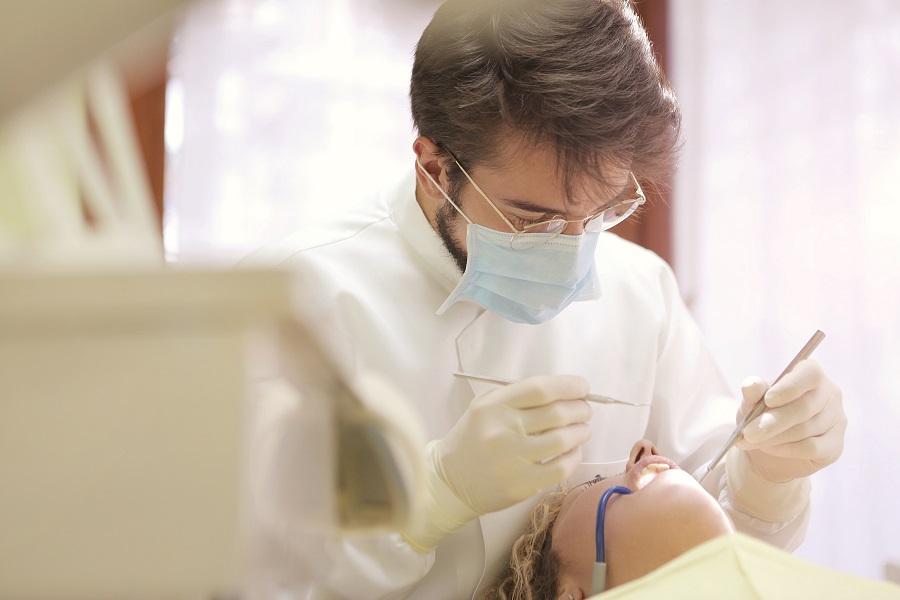From the importance of regular dental visits to finding the right dentist and maintaining a healthy smile, explore the ultimate guide to oral health and dental care.
Your oral health is crucial, regardless of your age, whether you're 80 or 8. Surprisingly, approximately 100 million Americans neglect to visit a dentist each year, despite the fact that regular dental check-ups and good oral hygiene can prevent most dental problems. To address common inquiries about dental visits, here are some frequently asked questions:
Why are regular dental visits important?
Regular dental visits are significant because they enable early detection of dental issues when treatment is easier and more cost-effective. Moreover, they help prevent many problems from occurring in the first place. Regular visits are also vital since certain diseases or medical conditions may manifest symptoms in the mouth.
What are signs indicating the need to see a dentist?
Consider seeing a dentist if you experience the following:
- Tooth sensitivity to hot or cold
- Swollen or bleeding gums while brushing or flossing
- Dental restorations such as fillings, crowns, implants, or dentures
- Dissatisfaction with the appearance of your smile or teeth
- Persistent bad breath or unpleasant taste in your mouth
- Pregnancy
- Mouth, face, or neck pain or swelling
- Difficulty chewing or swallowing
- Family history of gum disease or tooth decay
- Medical conditions like diabetes, cardiovascular disease, eating disorders, or HIV
- Frequent dry mouth
- Tobacco product use or smoking
- Undergoing medical treatments like radiation, chemotherapy, or hormone replacement therapy
- Jaw pain, popping, or discomfort when opening or closing your mouth, chewing, or upon waking up
- Unusual sores or spots in your mouth that persist or feel abnormal
Is it necessary to see a dentist if I don't have any symptoms?
Yes, regular dental visits are essential even if you don't exhibit any symptoms. Dentists can diagnose dental problems that may not present obvious symptoms. Moreover, regular visits help prevent the development of issues. Maintaining continuity of care is crucial for overall health, and dental health is no exception. Informing your dentist about any changes in your overall health is also important, as various medical conditions can affect your dental health.
What should I expect during a dental checkup?
During a dental checkup, the dentist or hygienist will inquire about your recent medical history, examine your mouth, and determine the need for X-rays. Depending on your treatment plan, the hygienist may use specialized dental instruments to check for gum disease. Your dentist will assess your overall dental health and conduct an oral cancer screening, which involves examining your tongue, mouth, jaw, and neck.
How frequently should I visit the dentist?
There is no universal dental treatment frequency. Some individuals may need to visit the dentist once or twice a year, while others may require more frequent visits. Each person is unique, with individualized oral health needs in maintaining a healthy smile.
How can I find a dentist?
To find a dentist, you can consider the following options:
- Visit ADA Find-a-Dentist to search for dentists in your area.
- Seek recommendations from family, friends, neighbors, or co-workers.
- Consult your family physician or local pharmacist.
- If you're relocating, ask your current dentist for a recommendation.
- Get in touch with your state dental society through a call or written inquiry.
What factors should I consider when choosing a dentist?
Before making a decision, it's advisable to contact or visit multiple dentists to assess compatibility. Dental care is a personalized service that thrives on a good dentist-patient relationship. During your first visit, consider the following:
- Is the appointment schedule convenient for you?
- Is the dental office easily accessible from your home or workplace?
- Does the office appear clean, organized, and well-maintained?
- Were your medical and dental history recorded and stored properly?
- Does the dentist provide instructions and techniques to prevent dental problems?
- Are emergency arrangements available for after-hours situations?
- Is information about fees and payment plans provided before scheduling treatment?
- Is your dentist a member of the ADA (American Dental Association)? ADA member dentists adhere to high ethical standards outlined in the member code of conduct. Remember to ask questions and take notes to remember your dentist's advice.
What's the difference between a DDS and DMD?
While searching for a dentist, you may encounter two different degrees: DDS (Doctor of Dental Surgery) and DMD (Doctor of Dental Medicine). Both degrees signify graduation from an accredited dental school. The educational requirements and clinical training for DDS and DMD are identical. Dental schools maintain academic standards equivalent to those of medical schools. Dentists with DDS or DMD degrees must pass national written and clinical licensing exams to practice. They also need to fulfill continuing education requirements throughout their careers to stay updated with the latest scientific and clinical advancements.
How can I maintain a healthy smile with my dentist's help?
To take care of your smile, follow these tips:
- Practice healthy habits like brushing your teeth twice a day for two minutes and daily flossing. These habits are vital for fighting tooth decay and gum disease.
- Build a relationship with your dentist. Regular visits allow for early detection of oral problems, reversible gum disease, and prompt treatment of cavities.
- Maintain open communication with your dentist. Only they can determine the best treatment plan for you. Ask questions and seek clarification on oral health or specific dental procedures. Dentists appreciate engaged and satisfied patients.
